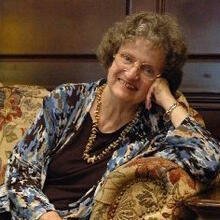Sand Gets in Your Eyes
Sand between the pages: that pretty much captures how I feel. Even without a summer vacation, a blue horizon, a rich red sunset off Acapulco, Long Island or Nantucket, a good summer read engages me. Well, sure, not everyone gets to the beach in the summer. Yet there’s a certain moment when summer hits hard, temperatures soar and many of us yearn to get lost in a book. Mary Higgins Clark is that sort of reader and that sort of writer. She writes for those who want full immersion in a story but can’t squeeze in time for even short books, let alone long ones.
I’ve Got You Under My Skin is Clark’s latest, and looks like a good candidate to get sand, or gumdrops, between the pages. This book is fat, heavy to cart around, but Clark herself (in a New York Times interview some time back) confessed that she lugs around heavy volumes to the dentist, the doctor’s office, all her appointments. Her reason: she never wants to lose a minute of reading time.
No doubt you’re thinking, What’s all this about, anyway? Is it the summer solstice? The magnetic field? Earth wobble? Summer makes us feel like it’s time to relax, kick shoes off, leave the dishes, let paperwork pile up while we follow the twists of a really baffling mystery.
Timmy was three when his father was killed right in front of him. He called out in alarm “Blue eyes just killed my daddy!” Now it’s six years later; Timmy is 9; his mother and grandfather still don’t know who Blue Eyes was, or whether this unsolved crime will ever be unraveled. But there’s more. Blue Eyes sent a message, which the boy still remembers. Tell your Mom she’s next, then it’s your turn….
The place is Manhattan. I haven’t lived there for some years, but felt Clark’s vivid simplicity walk me across every street corner. Those who have never lived in Manhattan may feel the same. First Deputy Commissioner Leo Farley of the New York Police Department, just retired, shepherds his grandson to and from St. David’s school. I can almost see the curbs on 98th Street as they move together, talking about simple stuff, when a fast-moving skateboarder flashes through their conversation, reminding us of uncertainty and doubt. Anything can happen in tales like this one, and frequently does. Meanwhile Timmy’s good-looking mom, Laurie Moran, is trying to launch a television series on unsolved murders and cold cases. The big unsolved mystery is not their stories but her own.
Next question: why the song title? Why do so many of Clark’s titles echo a well-known song? And how about the way she builds suspense? Short sentences, staccato dialogue, characters who voice their inner thoughts. At first, in the early pages, I was impatient with Clark’s careful descriptions. Hazel eyes for one character. Light brown for another. Long legs. Short legs. Crutches that slip out of control. Then I realized all this was part of Clark’s artful, deliberate style. Somewhere between Chapters 3 and 17 my irritation gave way to an urgent need to know what happens next.
No one is what she or he seems in this classic tale of murder, hatred, grief, shame, guilt, anger and revenge. Is Clark’s fiction an inverted way of portraying vice and virtue? Scenes unfold like photo stories in Vanity Fair, windows and balconies overlooking West Hollywood harbors and socialites smothered to death with fancy pillows.
A hundred pages later I found myself thinking, “Where is God in all this?” Clark’s mentions of God are sparse and non-theological, popping up in phrases like “God-given opportunity” and expletives like “Oh God!” But for me, God, rarely named, is an actor in Clark’s drama, where justice often takes center stage. I was sure of it when the murderer (never mind the name) heads out to do mischief with a reference to wailing and gnashing of teeth, a biblical reference for sure. There are plenty of human actors in Clark’s drama, too, asking make-up artists to make them look not like themselves, but someone else. Illusion, appearance, secrets long buried in memory, not to mention Shakespearean devices like draughts or potions: sleeping pills on a hospital table as a police detective tries to pinpoint a crime soon to be committed many miles away.
It’s a page-turner, but more than that, a reflection on the human heart. That’s what murder is about, and why summer reading never goes out of style.
For years I carried around a 3-by-5 card with this verse from Jeremiah 17: “the heart is more devious than any other thing…who can pierce its secrets?” Oddly, a remark of Meg Ryan’s also comes to mind: “There is no upside to fame.” Her comment applies to wealth and privilege as well. Handsome people, rich estates, well-manicured hands and lawns still hide unspoken secrets: loathing, the desire to do harm, feelings of guilt, fear of retribution. It’s all there, as in Dante, and the staircases lead straight down. Unless they lead up, where the angel is pointing to joy, beauty and long, lazy afternoons. And the song title? I’ve known the Cole Porter lyric many a day. “I’d sacrifice anything, come what might, for the sake of havin’ you near.” Not just a lyric, but a motive. Clark is a master of both logic and intuition. She grasps the meaning of songs, and their cautions: “Don’t you know, little fool, you never can win.” I’ve Got You Under My Skin is a good read, as Clark’s big sales figures suggest. As a suspense novelist, she’s skilled, intuitive, sometimes funny. But with the insight of ancient playwrights and thinkers, she is always probing for justice. That, of course, is ultimately up to God.
This article also appeared in print, under the headline “Sand Gets in Your Eyes,” in the June 23-30, 2014, issue.








